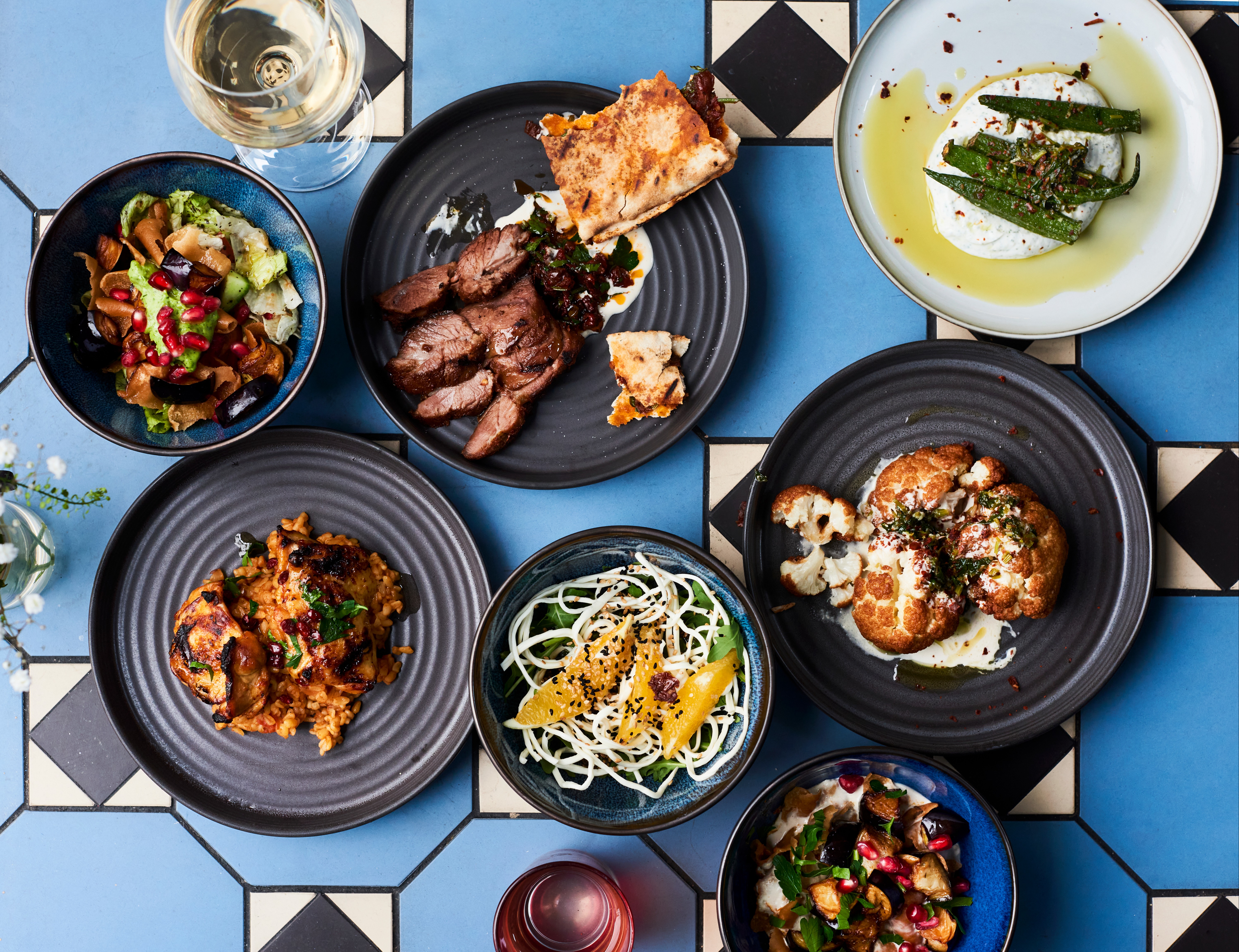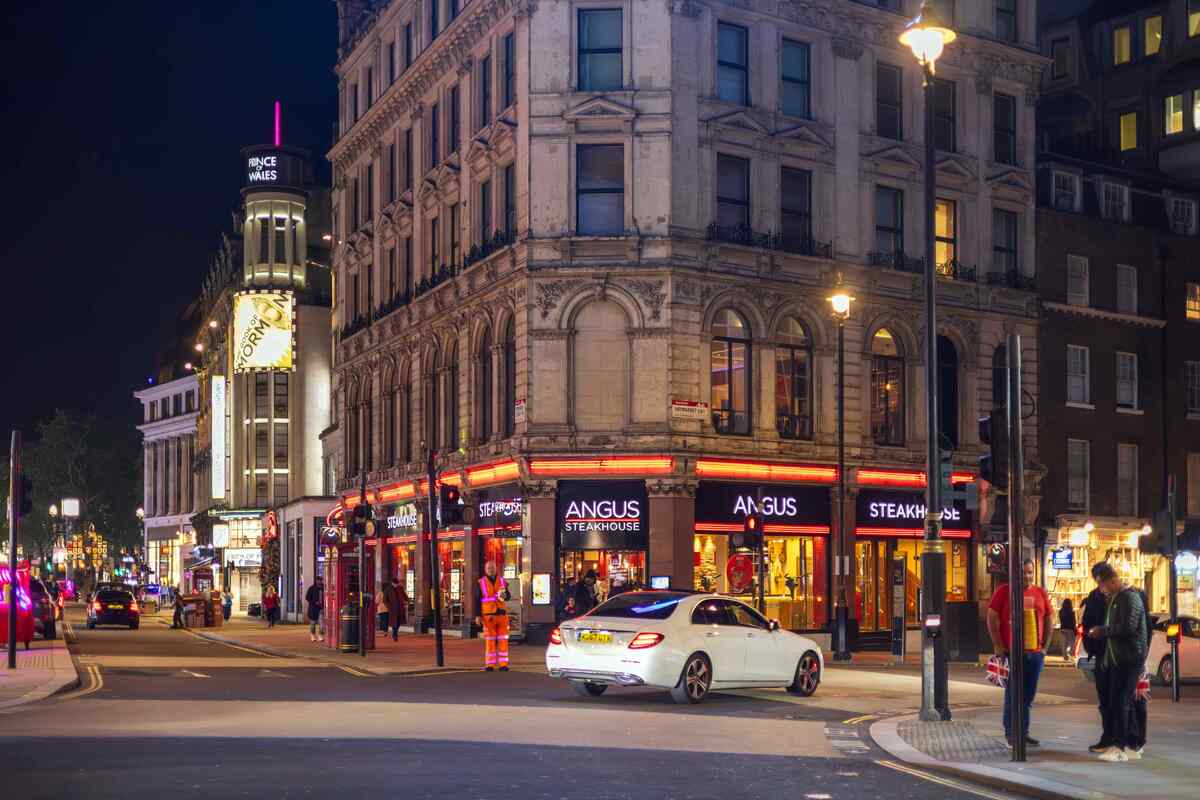Reviews: Jimi Famurewa is optimistic for the future of Imad’s Syrian Kitchen, while Fay Ripley visits the Bull and Last
The London Evening Standard’s Jimi Famurewa finds optimism for the future of Imad’s Syrian Kitchen in London’s Soho
My pal Richard and I settled in happily, clinked glasses of beautiful Tokaj-Hetszolo Hungarian dry furmint from a confidently short wine list, and then the first few arrivals from a snappy menu of small sharing dishes turned up and our faces became twin masks of tight-smiled concern.
Baba ghanoj arrived in a flattened boat of roasted aubergine, coyly seasoned and a little crowded out by an accompanying avalanche of radish, cherry tomato, pomegranate seeds and dribbled tahini. Fattoush felt similarly disharmonious. A brooding, gorgeously spice-kissed and slow-roasted lamb shoulder (ketf ghanam) was tragically a touch dry.
But then, blessedly, the trajectory of the entire lunch shifted.
First came mtafayt bamyeh: smartly roasted fingers of okra, blobbed with a coriander paste, and playing against the freshness of a cloud of labneh. Falafel – fine-crisped wheels with the zesty addition of sumac onions – were outstanding. And jaj barghol, ravishingly crisped, succulent chicken thighs beside cinnamon-scented bulgar wheat and an accompanying fire-breather of a scotch bonnet chilli sauce, was flavoured with care and unequivocal brilliance. Here it was: everything I had heard about Syrian cuisine’s fragrant left-turns, vibrant punch (a Syrian mate-of-a-mate joked that their food instincts generally involve adding garlic and lemon to every- thing) and generosity of spirit.
By the time we got to our coffees and puddings (I would particularly nudge you towards the subtle, pistachio-layered roulade of Syrian ice-cream) I felt both palpable relief and a clear optimism for the future prospects at Imad’s. The shift from informal, family-style supper club to grown-up restaurant has obviously engendered some teething pains, not helped by the pandemic.
The things that really work point to an enterprise that should orient itself around abundance, simplicity and the traditions of the home. The prevailing wisdom is that Imad’s Syrian Kitchen is the culmination of an extraordinary story. I hope, truly, there are still some fascinating, unglimpsed chapters left to write.
Price: meal for two plus drinks, £90
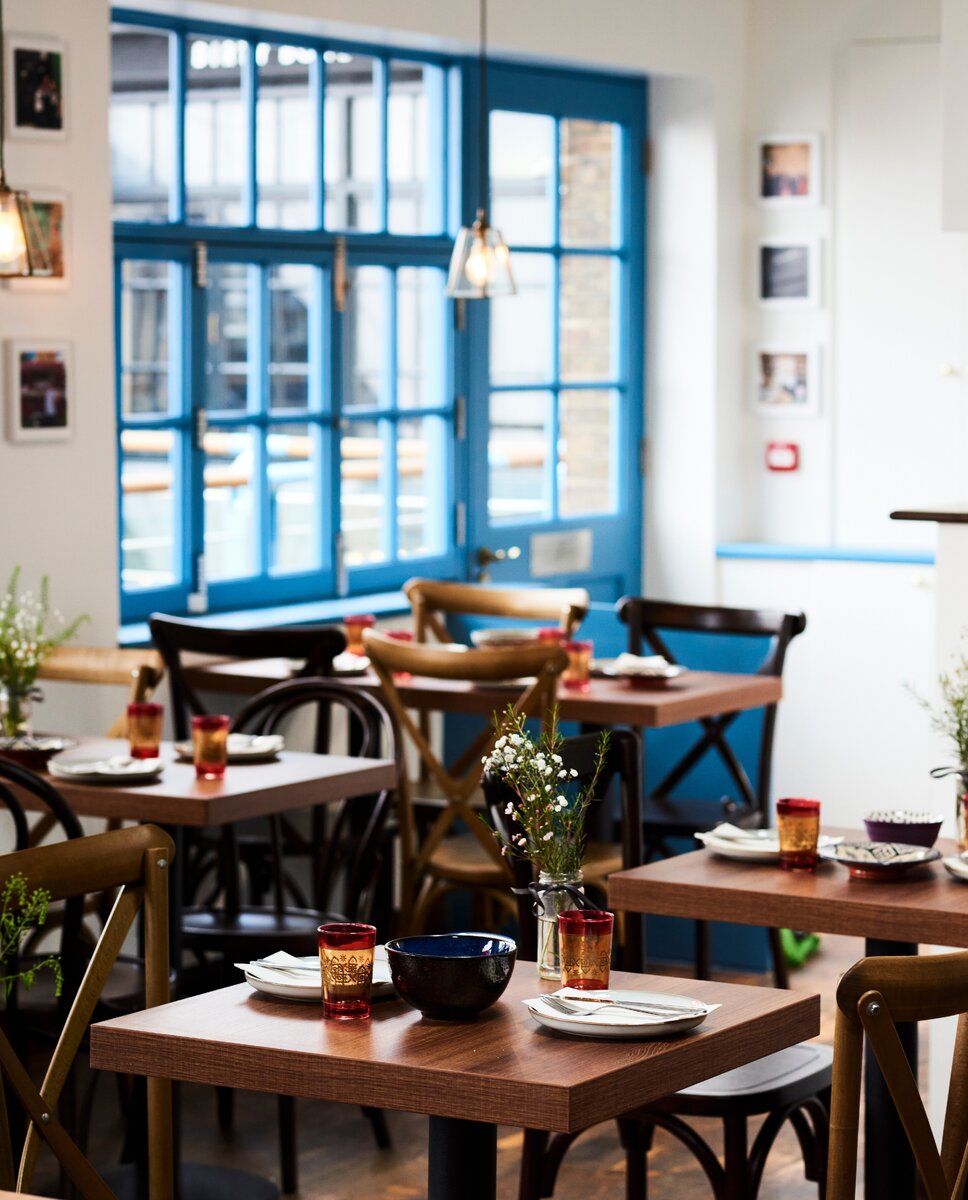
Fay Ripley of The Observer finds something much better than her own cooking at north London’s Bull and Last
I start planning our next visit before our main course has even arrived. A crisp French rosé on the rocks [ranges] from a glass at £4.50 to a bottle at £27. My husband is quietly ordering a beer that can only be enjoyed by Bull and Last customers: So Solid Brew, a 4.4% pale ale.
Their main courses are known to be a reflection of the stuffed, mounted animal heads watching us dine; they were early pioneers of nose-to-tail, and I’ve definitely eaten a pig’s ear or two here in the past. But changing tastes and a passion for ingredients show up in the middle courses, which range from £15 to £34, offering fish-and-chip classics to pies and steak.
I, however, have my eye on one of the two vegetarian options, both with celeriac at the heart of each dish. It arrives as a picture of peashoots and zucchini adorning a roasted steak of salt-baked celeriac on a sweet broad-bean relish. Hearty yet delicate, it is like eating a garden.
My husband, an all together more meaty fella, has a sirloin steak and triple-cooked chips to rival any. Produce and suppliers are key to the success of this place and it elevates each dish that arrives. I’m a confident cook who loves being in my own kitchen, so I need to walk away from a night out knowing I could not have done it better. Well I couldn’t, and that is confirmed with the arrival of the warm chocolate brownie and soft-serve vanilla ice-cream. I mean, what genius allows me to enjoy my childhood favourites at Michelin-starred taste levels? It is unnecessary to order a side ball of Malteser ice-cream but hell, it’s date night.
What genius allows me to enjoy my childhood favourites at Michelin-starred taste levels?
Price: starters, £4-£12; mains, £10-£34; wines, from £26
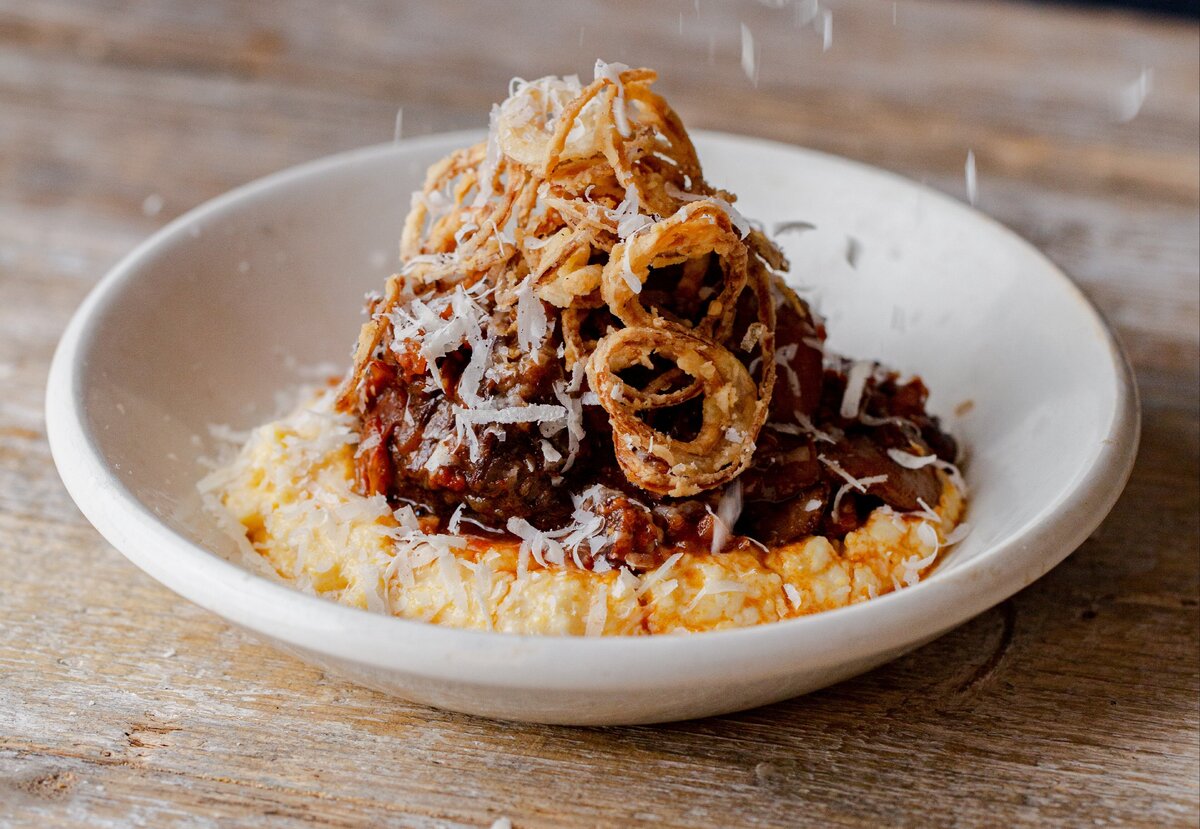
The Times’ Giles Coren tries to summarise the Ivy London’s reputation to his 10-year-old daughter
From the menu, [my daughter] Kitty ordered a prawn cocktail (£13.75) that was absolutely as it should be, with neat little prawns and a Marie Rose sauce that erred on the pink side, with plenty of shredded Gem lettuce and slices of avocado; and a burger (£16.75), with everything except the fried runny egg because, she said, “It’s bound to go everywhere and I think Mum made me wear this stupid white cardigan specifically so she could check if I’d been eating nicely.”
The burger, said Kitty, was amazing. Crunchy from the grill on the outside and superjuicy. She wolfed it down in seconds and, with her stomach suitably lined, was allowed half a glass of Champagne (her genuine tipple since the age of two) and then chocolate ice-cream. Meanwhile, we had plates of the cheese-topped shepherd’s pie (£19.75), still as good as ever, as rich and silly as Jeffrey Archer, its most famous consumer back in the glory days, with a very good £56 Bordeaux supérieur, and a grilled whole lobster with wild garlic butter (£39.75), immaculately presented with many silver pots of fries.
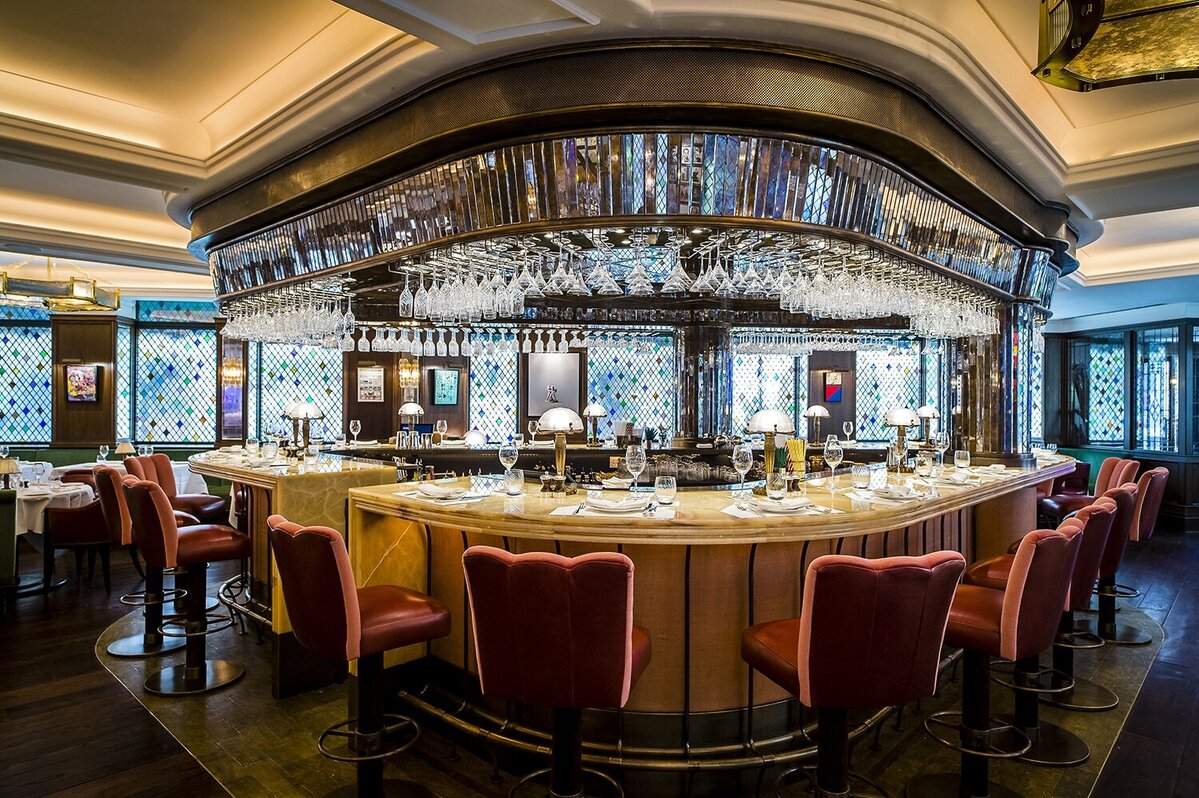
Marina O’Loughlin of The Sunday Times finds Dimsum & Duck in London’s King’s Cross to be much more than it looks
Dimsum & Duck quietly opened on the unlovely King’s Cross Road. You don’t expect a great deal from outfits like this: busy menu on the window, lots of delivery service branding, decor … well, least said.
But everything I’ve eaten from here has been astonishing. Ordering prawn and chive dumplings, I prepared for standard freezer jobs; instead I got something almost ethereal: ghost-thin translucent wrappers, fat, squeaky-fresh gingery prawns, a fascinator of finely chopped chives on top. Wow. One trip we had salt and pepper baby cuttlefish, frilly little tentacles crisp and greaseless, humming with chilli, garlic and head-spinning quantities of the condiments. But the dim sum are the things: wrinkly tofu skins packed with more sweet prawns; fluffy bao stuffed with duck and chestnut, murkily sexy.
It’s almost impossible to find out much about the place. But who cares, really? What matters is the food, mostly Cantonese with excursions into Sichuan (dry-fried green beans with pork, almost floral in their lavish use of, I think, pickled mustard greens and particularly frisky Sichuan peppercorns) and even Thailand.
They’re crowd-pleasing without dumbing down. The duck is a revelation: Rizla-thin lacquered skin, a cleaver viciously slammed straight through so you must suck succulent flesh off little bones.
Price: meal for two, including 10% service charge, £43
The Scotsman’s Gaby Soutar says ‘bao wow’ after visiting Sister Bao in Edinburgh
The first option to hit our table was the honey roast pork bao (£1.60), which was candy floss fluffy on the outside, with a heart of diced pork and carrot. It was less jammy and saucy than other versions that I’ve had, and more meaty.
We also tried the shrimp with cabbage bun (£1.50), which featured plenty of seafood, but also a fungi flavour, with perhaps wood ear mushroom in the mix. Bao wow.
The next arrival was wonton soup noodles (£8.50) and dumpling soup noodles (£8.80). The small people were really into the wonton version, which had an opaque, savoury and stocky sauce, as well as a massive contingent of soft, skinny noodles and about seven wonton, with sausagey pork meat in diaphanous and wrinkly dough wrappers. It was soul food, and we dredged the depths.
The dumpling soup noodles (£8.80) were more grown-up, with a “sour broth” that was made with chicken stock and Chinese black vinegar, as well as more of those wontons, all sprinkled with sesame seeds, which were suspended on the mahogany-coloured surface.
A set of 10 (£8) fried pork dumplings arrived. They vanished fast, dipped in the vinegar and soy sauce on the side.
We love it here. It’s not fancy inside, with a wobbly table and canteen-style seating, and you could easily walk past their steamed up window without paying it much attention.
Price: lunch for two adults, two children and a baby, £37.40
Cornwall Live’s Lee Trewhela finds a new age of Cornish dining at Jude Kereama’s Kota Kai in Porthleven
If you’re a fan of seafood then Kota Kai is a must. Oysters, mussels, squid, seared tuna, salmon, Falmouth Bay scallops, crab are all served but with Jude and his team’s unique twist.
As the man himself is half Maori and half Chinese Malay, it’s fitting that this is global fusion food at its best.
Jude was one of the first to introduce bao buns to Cornwall and his are exquisite (the Singapore crab version is stellar but – and I could have cried – not on the menu when I visit). The duck bao bun with spring onion, Asian slaw, cucumber, hoisin and peanuts is equally as good.
Other small plates include Korean fried cauliflower, gochujang, chives and lettuce; salmon and avocado maki; salmon nigiri sushi plate, with pickled ginger, soy, wasabi; and seared rare tuna, celeriac rémoulade, wasabi mayo, ponzu, pickled cucumber and radish.
With the sea right next to you and the ocean on your plate, this is the new age of Cornish dining.
Mains include twists on favourites such as the Kai fish and chips (though you get wasabi tartare here) and the Kai burger and fries, but it is Jude’s wonderful way with seafood that dragged me in.
My dining partner had the poke bowl of the day (brown rice, avocado, nori, carrots, edamame beans, gochujang mayo, pickled ginger, furikake spices – and, today, salmon sushi). Ridiculously tasty and with ingredients which are surely only doing you the world of good.



